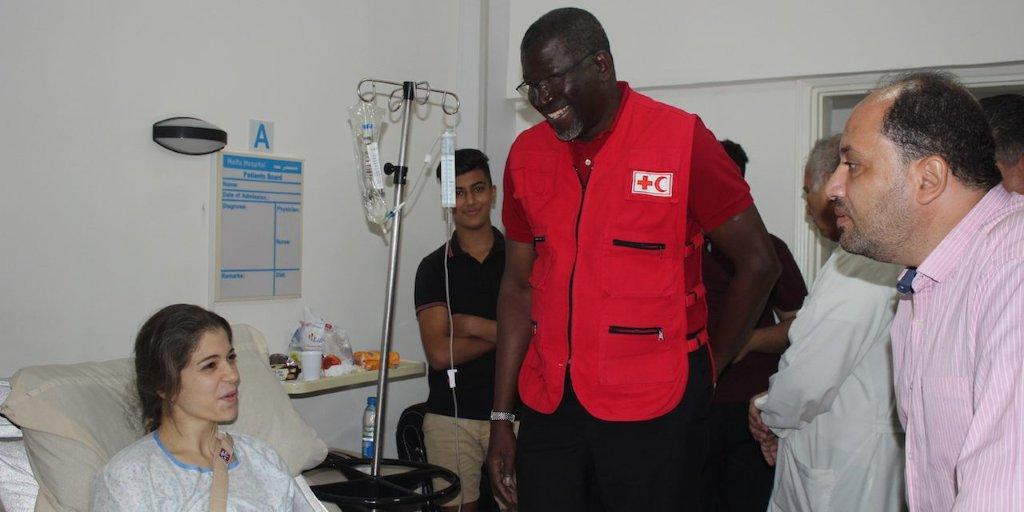
By: IFRC
Rayan, 25, is a volunteer working with refugees in Lebanon. She was organising a play day for children in the Bourj el-Barajneh Refugee Camp in Beirut, when a swing collapsed and broke her arm and leg. Rayan was quickly taken to Haifa Hospital which is managed by the Palestine Red Crescent, the sole health provider for the camp population.
“We have so many children who need psychological support after losing a parent or a close relative,” Rayan said. “Through the play and learn days we try to introduce some joy into their lives.”
Haifa hospital is in a southern suburb of Beirut. According to recent UN statistics, more than 20,000 registered Palestinian refugees live in the camp, though it was originally only intended for half that number. The camp has narrow roads, an old sewage system, and is regularly flooded during winter.
As a result of the crisis in Syria, the camp population has grown rapidly with people.
The hospital functions despite serious challenges. The building is crammed tightly between other buildings, making it difficult for ambulances to pass, and electricity wires hanging near water pipes is a common site. Many deaths are recorded each year from electrocution and collapsing buildings.
Challenging circumstances
Despite its challenging circumstances, the hospital functions well. It has 40 beds overseen by 30 doctors and 44 nurses who provide primary and secondary health services to an average of 300 inpatients each month and approximately 100 outpatients a day. Established in 1985, the hospital has an emergency room, medical, surgical, pediatrics, obstetrics and gynecology, and an Intensive Care Unit.
With the exception of maternal and child health care, the highest number of consultations are related to non-communicable diseases such as cardiovascular disease, high blood pressure and diabetes, often related to the conditions in which the refugees live. But the staff also deals with trauma care and gunshot wounds injuries when the security situation deteriorates inside the camp.
“It is quite impressive how the Red Crescent is able to accommodate all kinds of health services in spite of the lack of proper infrastructure and challenging setting,” said IFRC’s Secretary General Elhadj As Sy during to his visit to Haifa hospital in Beirut.
The ongoing conflict in Syria has forced many Syrians and Palestinian refugees who were based in Syria to flee to Lebanon in search of safety. Many of them benefit from health care provided by the Palestine Red Crescent.
Turn no-one away
Dr Samer Chahade, Director of Red Crescent’s Lebanon Branches keeps the hospital doors open to all patients whether Palestinian, Syrian or Lebanese, thanks to funding from partners across the humanitarian spectrum. “UNERWA contributes to our budget but doesn’t cover all the financial needs,” he said. “Due to the support we received from partner Red Cross and Red Crescent societies we can bridge the funding gap and make sure that no one is left behind.” Before the crisis in Syria, Palestinian-Syrians used to make up about five per cent of patients, now they are 30 per cent of people seen at the hospital.
There are more than 450,000 Palestinian refugees registered in Lebanon and more than 50 per cent live in the country’s 12 refugee camps.
End.